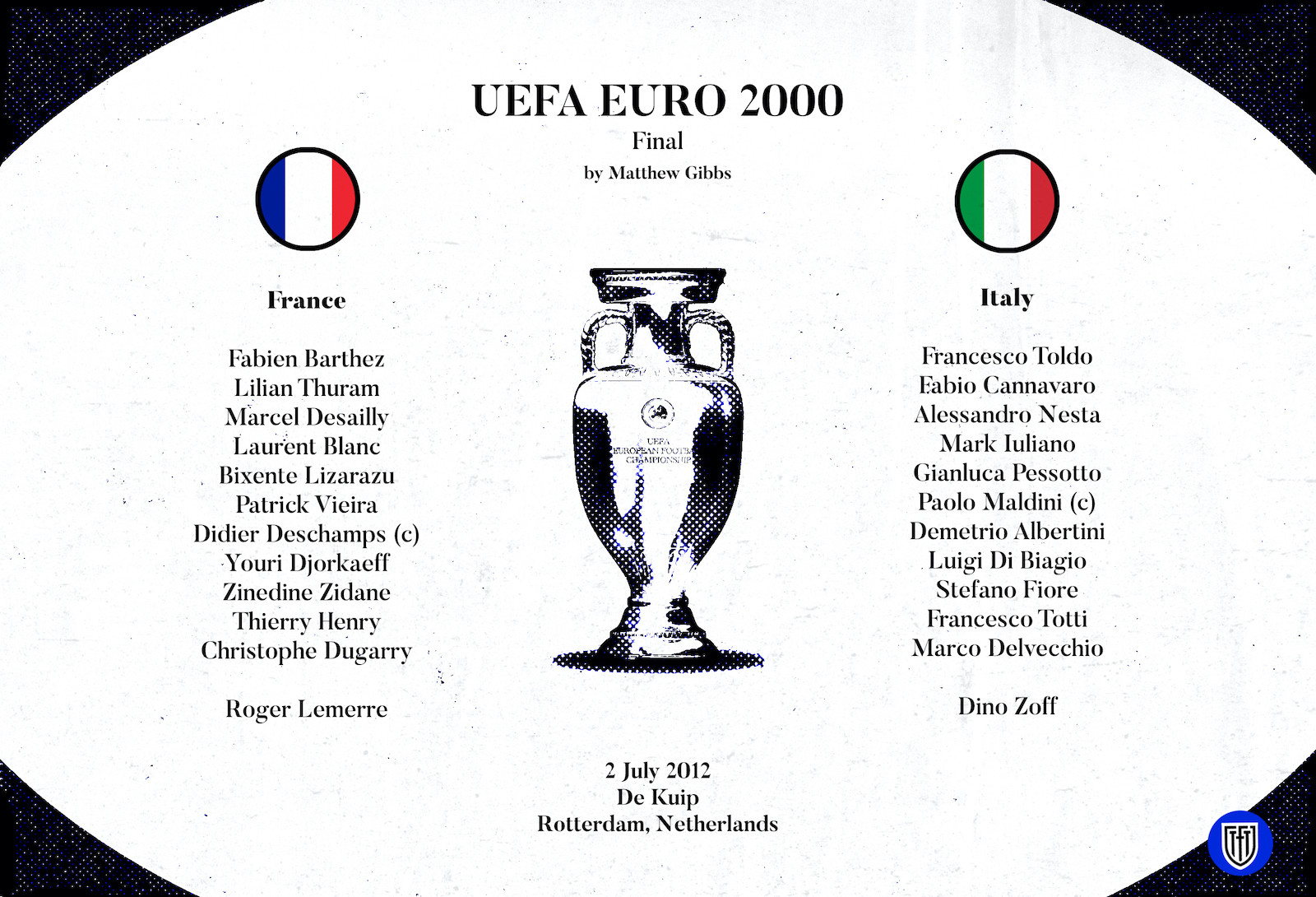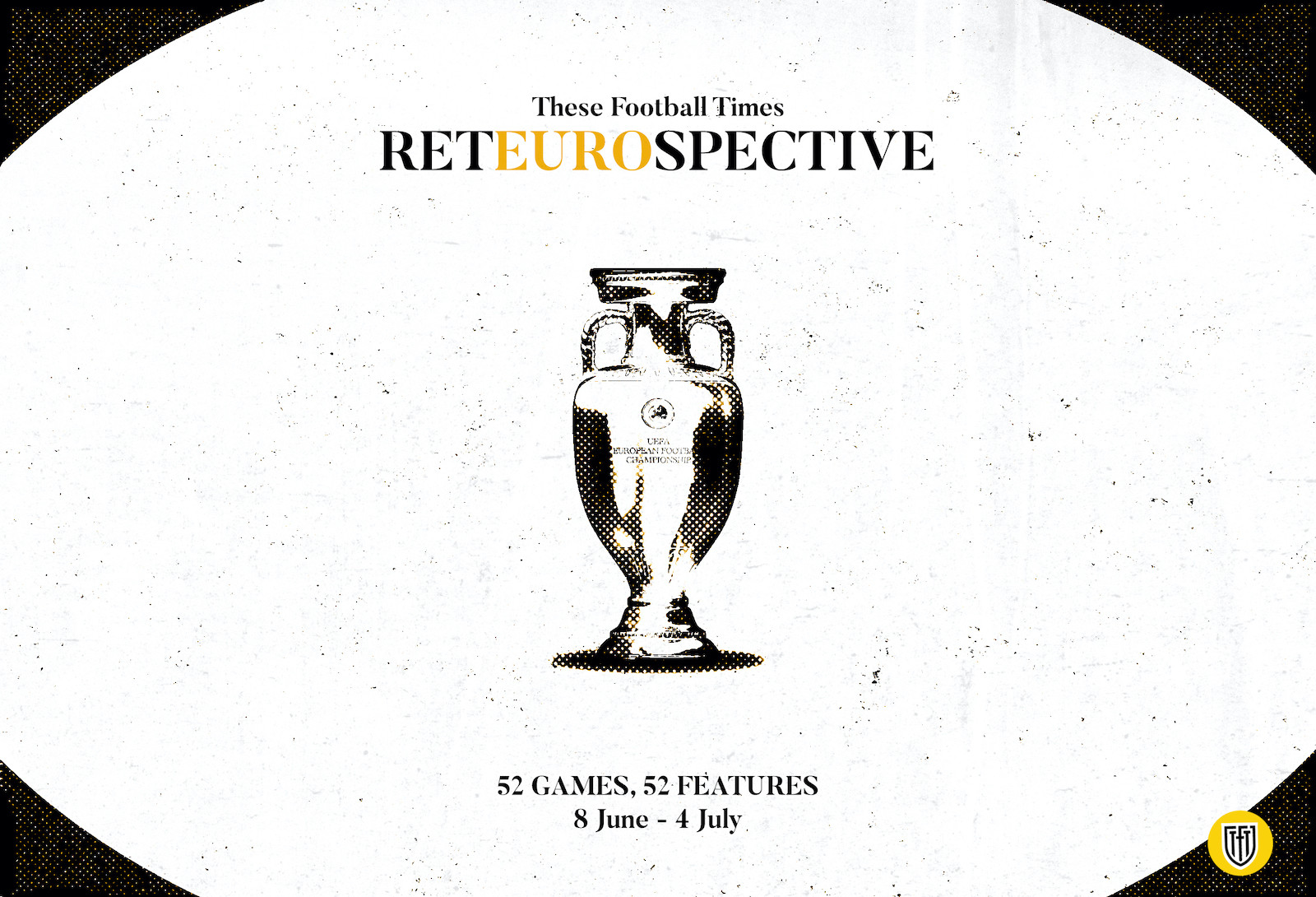Euro 2000 is etched in the memories of many football enthusiasts as a pinnacle of international tournaments. Held in Belgium and the Netherlands, the summer of 2000 delivered an unforgettable spectacle: thrilling comebacks, spectacular goals, captivating football, and the high-stakes drama synonymous with the European Championship.
The final in Rotterdam might not have mirrored the consistent brilliance of the tournament’s preceding matches, yet it served as a breathtaking climax to a summer of footballing excellence. This match provided a dramatic stage for a group of exceptional players to solidify their legacy as one of the greatest international teams in history.
This French squad, under the guidance of Roger Lemerre, arguably surpassed the team that had clinched victory on home turf at the 1998 World Cup. While Aimé Jacquet had previously navigated to success without a world-class striker, relying on Stéphane Guivarc’h, Lemerre enjoyed a wealth of attacking options. Two years later, he could select from the likes of David Trezeguet, the pacey Nicolas Anelka, and the electrifying Thierry Henry.
Indeed, the sheer depth of attacking talent at Lemerre’s disposal was almost overwhelming. With Christophe Dugarry, Robert Pires, Sylvain Wiltord, Johan Micoud, Youri Djorkaeff, and the maestro Zinedine Zidane, Les Bleus boasted an attacking arsenal that ranks among the most formidable ever assembled at a European Championship. Complementing this attacking prowess was a robust defensive foundation. The backline, composed of Lilian Thuram, Marcel Desailly, Bixente Lizarazu, and the experienced Laurent Blanc, was as imposing as their attacking counterparts were dazzling.
Many argue that this French team represented the most complete squad ever to compete in a European Championship.
Juxtaposing this French dream team with their Italian rivals, who were considered less stellar at the time, the final appeared, on paper, to be a straightforward affair. However, facing Italy, a nation renowned for its endless stream of gifted players and unwavering resolve, victory was never guaranteed.
Led by the seasoned Dino Zoff, the Azzurri were a model of efficiency and compactness. Adhering to the traditional Catenaccio principles, they had conceded a mere two goals throughout the tournament. They were not about to yield easily.
Finals often become tense, tactical battles, where the fear of defeat overshadows the ambition for victory. In such tightly contested matches, moments of individual brilliance or critical errors are often the deciding factors. Fortunately, this final was illuminated by flashes of genius.
The game commenced at a high tempo. Italy, embracing their underdog status, exerted early pressure, with Marco Delvecchio of Roma causing significant trouble upfront. Henry spearheaded the French attacks, unleashing a couple of his signature shots, while also enduring robust challenges from the Italian midfield, particularly from Luigi Di Biagio.
However, the final truly ignited in the second half when, in the 55th minute, a moment of inspiration shattered the deadlock.
Francesco Totti, Italy’s standout performer of the match, produced an exquisite backheel flick, setting Gianluca Pessotto free on the right flank. Capitalizing on the first genuine space afforded in over 50 minutes of play, Pessotto delivered a pinpoint cross that evaded a lunging Desailly and found Delvecchio, who volleyed it decisively into the net.
 Francesco Totti's backheel assist to Gianluca Pessotto unlocked the tight French defense.
Francesco Totti's backheel assist to Gianluca Pessotto unlocked the tight French defense.
France appeared shaken and vulnerable. Totti, now finding more space, orchestrated further opportunities for Delvecchio and Alessandro Del Piero. Both forwards, however, squandered golden chances that could have sealed the victory for the Azzurri.
France seemed devoid of creative solutions. David Lacey, a journalist for The Guardian, described Zidane, the semi-final hero, as appearing “reduced to the role of a disembodied brain in a laboratory, still capable of thinking but unable to make things happen.”
Recognizing the game slipping from Les Bleus’ grasp, Lemerre opted for decisive substitutions. Despite his limited prior managerial experience, perhaps surprisingly with the French army, his changes proved to be among the most impactful in European Championship history.
Wiltord and Pires, both poised to join Arsenal, and Trezeguet were introduced – and all three would become instrumental in France’s dramatic turnaround.
As the match edged agonizingly towards its conclusion, Italy remained steadfast in defense, while France resorted to desperate long balls. In the 94th minute, Fabien Barthez launched a long punt forward. Trezeguet managed to outmuscle Mark Iuliano, heading the ball towards the onrushing Wiltord. Wiltord chested it down perfectly and fired a low shot past Francesco Toldo and into the bottom left corner.
 Sylvain Wiltord's dramatic late equalizer stunned Italy and forced extra time in the Euro 2000 Final.
Sylvain Wiltord's dramatic late equalizer stunned Italy and forced extra time in the Euro 2000 Final.
It was a cruel blow for Toldo, who had delivered a stellar performance, and for Italy, who had effectively contained the world champions. But for France, it was a lifeline, offering a golden opportunity in the truest sense.
While normal time might have lacked outright attacking intent, the looming specter of a golden goal ensured that extra time was anything but cautious. Galvanized by Wiltord’s equalizer, France seized control, dominating possession and creating chances.
Pires, injecting dynamism into the French attack since his arrival, collected the ball on the left flank, skillfully evaded two defenders, and chipped a cross towards Trezeguet. Trezeguet, with a swift swivel, unleashed a powerful half-volley that etched his name into football folklore.
For some, this victory was portrayed as a triumph of attacking football over defensive pragmatism, criticizing Zoff’s conservative tactics – despite their effectiveness in guiding the Azzurri to the final. The Daily Telegraph, in a somewhat harsh assessment, remarked the following day, “Purists and Parisians alike would have dismayed had Italy prevailed.”
In contrast, this French team, brimming with flair, pace, and technical brilliance, secured a historic victory that placed them alongside legendary international sides such as Brazil 1970, West Germany 1974, and Spain 2012.
Many at the time speculated whether this marked the genesis of a new era of French dominance in international football. However, for the French captain Didier Deschamps, the significance was immediate and absolute: “It’s never going to get any better than this.”
By Matthew Gibbs @matthewleuan
